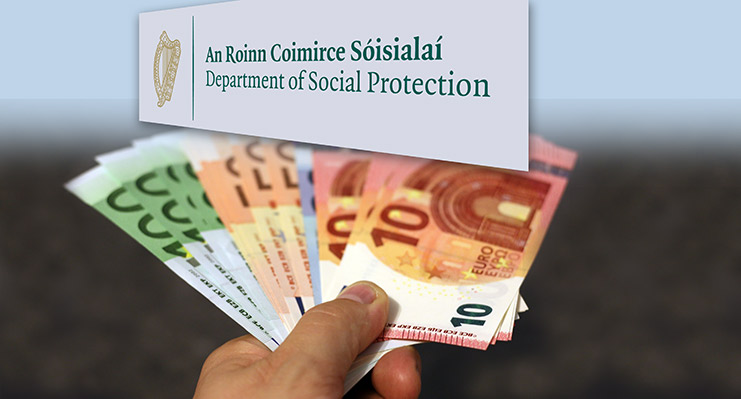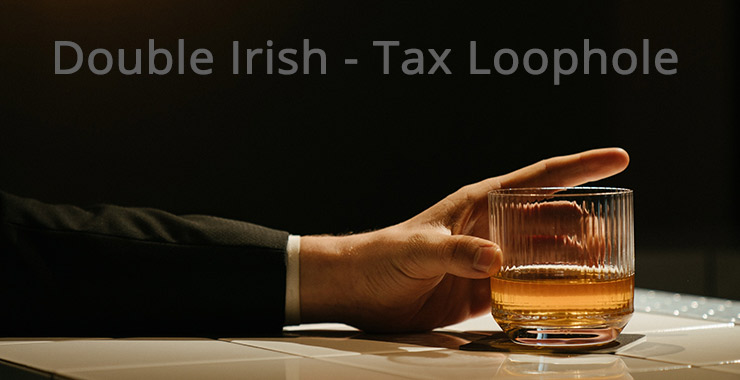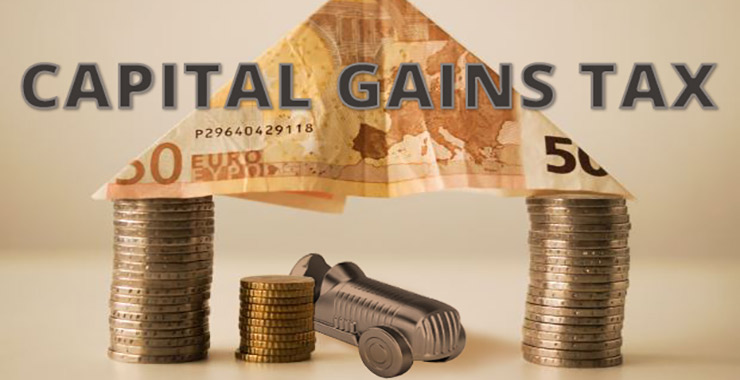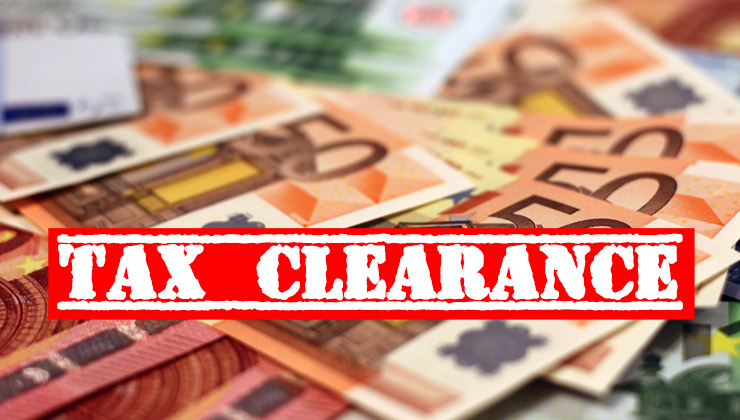John M Shanahan & Co.
linking practice to business



John M Shanahan & Co. provides a range of Taxation services to ensure your business stays compliant.
Please see the articles below which which you can also access from anywhere on this site by using the drop-down menu under the Taxation tab. You can access the complete service description by clicking on the relevant Read More button.
Income Tax

Income Tax will apply in cases where you set up your business as a sole trader or in partnership with one or more other people: i.e. not through a company.
If this is the route you decide to take, you will then be self-employed for tax purposes and will need to file an Income Tax return for each year that you are in business, including the year you start your business and the year you cease to be in business.
Rental Income Tax
There are many small property investors out there who may be under the false illusion that if the rents are not covering the borrowings i.e there is no cash surplus, then there are no taxes to worry about; nothing could be further from the truth.

Where you make a profit on the rent - you pay income tax.
Whether or not you have any cash left over from the transactions - you still pay LPT.
When yout tenant leaves and is replaced by another still pay the PRTB levy.
If you sell the property and make a profit you will pay CGT
Here below are the do's and don'ts of rental income and expenses.
Farmer Taxation
Farmers are give special status because of the importance of their role to the Irish economy, as well as the normal tax issues that apply to all other tax payers, farmers have over the years managed to differentiate themselves from others by securing special treatment in many aspects of taxation, a summary of which we have outlined here-under.
Income Tax
Capital Allowances
Stock Relief
Profits from Woodlands
Leasing of Farm Land
Family Farm Wages
Capital Gain Tax
Capital Acquisitions Tax
Stamp Duty
Personal Tax Credits
A person is entitled to tax credits depending on your personal circumstances, e.g. married person's tax credit, employee (PAYE) tax credit, etc.
These tax credits are used to reduce the tax calculated on your gross pay. Tax credits are non-refundable. However, any unused tax credits in a pay week or month are carried forward to subsequent pay period(s) within the tax year.
Benefit In Kind
 Benefits-in-kind, such as private use of a company car, free or subsidised accommodation and preferential loans, received from an employer, by an employee are taxable.
Benefits-in-kind, such as private use of a company car, free or subsidised accommodation and preferential loans, received from an employer, by an employee are taxable.
Where the employee receiving such benefits is a director of the company concerned, the benefits are taxable regardless of the level of remuneration.
PRSI
Pay Related Social Insurance

Most employers and employees (over 16 years of age and under 66) pay social insurance contributions into the national Social Insurance Fund (SIF). In general, the payment of social insurance is compulsory.
A PRSI contribution is payable in respect of full-time employees and part-time employees and consists of an employer's and, where due, an employee's share of PRSI.
Universal Social Charge

The Universal Social Charge (USC) is a tax that has replaced both the income levy and the health levy (also known as the health contribution) since 1 January 2011.
You pay the USC if your gross income is more than €13,000 per year. Once your income is over this limit, you pay the relevant rate of USC on all of your income. It is calculated on a weekly or monthly basis.
It does not apply to social welfare or similar payments, and there are certain other exceptions: see 'Income exempt from the USC' below
USC is a tax payable on your total income, but there are some types of income that are exempt. Depending on your circumstances, you pay USC at the standard rate or the reduced rate.
Pension

A Pension scheme or as often referred to as a retirement plan, is a way of saving money specifically for your retirement. What makes it different from an ordinary savings plan is that Revenue will assist in the form of tax relief, for which in turn, access to your savings will be restricted.
This restriction takes the form of access to your money, which becomes available when you reach the minimum retirement age.
VAT
Value Added Tax (VAT)

VAT is a tax on consumer spending. It is collected by VAT-registered traders on their supplies of goods and services effected within the State, for consideration, to their customers.
Generally, each such trader in the chain of supply from manufacturer through to retailer charges VAT on his or her sales and is entitled to deduct from this amount the VAT paid on his or her purchases.
Corporation Tax
All companies resident in the republic of Ireland and all non-resident companies which carry on a trade in Ireland through a branch or agency, subject to specific exemptions, are liable to corporation tax.

A company which commences to trade is obliged to register with Revenue within 30 days of its commencement.
Corporation tax is charged for each financial year.
Assessments are made by reference to an accounting period, and where an accounting period straddles two financial years, the profit is apportioned accordingly, to be charged at the appropriate rates.
Capital Allowances
Certain expenditure is of a “capital” nature, i.e. invested in buildings, equipment, motor vehicles, etc.

Because such assets will be used in the business over a number of years, you will be entitled to an allowance, generally based on the cost of the asset, for most equipment (furniture, displays, motor vehicles etc.), spread over a number of years.
Contractors
RCT only applies to payments made by a principal contractor to a subcontractor under a relevant contract (this is a contract to carry out, or supply labour for the performance of relevant operations in the construction, forestry or meat processing industry).

A list of construction operations that are subject to RCT is available here.
The RCT system is a withholding tax system where a Principal Contractor deducts tax from payments made to a subcontractor, unless the principal has been informed otherwise by Revenue.
Capital Gains Tax
CGT is a tax on a capital gain arising on the disposal of assets owned by you. At its simplest, deducting the price you paid for an asset when you acquired it from the sale proceeds when you dispose of it gives you the chargeable capital gain.

Put in another way, if you buy something for one price, and then sell it at a higher price or, for that matter give it away when it is worth more than you paid for it, then Revenue consider that you have made a Capital Gain and may therefore be liable to tax.
In calculating the amount of tax payable, deductions are allowable for incidental costs of acquisition, such as solicitor’s fees, stamp duty etc. and incidental costs of disposal such as, solicitors/auctioneers fees etc. In addition, where an asset was acquired before 2003, inflation relief may be available, effectively adjusting the cost in line with a published inflation factor.
Capital Acquisitions Tax
 Capital Acquisitions Tax (CAT) applies to gratuitous benefits, for example, a gift or an inheritance.
Capital Acquisitions Tax (CAT) applies to gratuitous benefits, for example, a gift or an inheritance.
The person who provides the property is the disponer, and the disposition is the method by which the property passes. Where property passes by will, the disponer is the testator. Where property passes on intestacy (no will), the disponer is the deceased.
The term disposition is very widely defined to include not only a will or intestacy, but any method (including, for example, any trust covenant, agreement or arrangement) by which property can pass.
The date of the disposition is the date of death of the disponer in the case of property passing by will or intestacy, and in other cases it is the date on which the disponer provided the property (or bound himself to provide it).
Stamp Duty

The basic principle of Stamp Duty is that it is a duty or tax on documents and not on transactions or persons.
Therefore if a transaction or transfer can be carried out legally without the use of a written document, then there is nothing to be stamped and therefore no charge to Stamp Duty.
Stamp duty is also charged, in the form of a levy, on insurance premiums, credit cards, and bank cards.
Travel and Subsistence

Flat Rate Employment Expenses
These are expenses that are incurred in the performance of the duties of the employment and are directly related to the 'nature of the employee's employment'. A standard flat rate expenses allowance (deduction) is set for various classes of employee.
The amount of the deduction is agreed between Revenue and representatives of groups or classes of employees (usually the employees are represented by trade union officials). The agreed deduction is then applied to all employees of the class or group in question.
See Revenue's Flat Rate Expenses List.
Tax Clearance

A Tax Clearance Certificate is a written confirmation from Revenue that a person's tax affairs are in order at the date of issue of the Certificate. In some instances a Certificate may be issued to a customer who has tax arrears provided such arrears are covered by an instalment arrangement that has been agreed with Revenue.
The requirement to produce a Tax Clearance Certificate usually arises in the context of a person seeking State money (e.g. Government contracts, grants) or obtaining licences (e.g. excise licence, road transport licence) but can also arise in other cases (e.g. the Standards in Public Office Act, 2001 recently applied tax clearance requirements to persons elected to the Dail or Seanad, judicial appointees and senior office appointees). Apart from situations where a person is legally required to produce a Tax Clearance Certificate, Revenue is also prepared to issue a Certificate to any customer whose tax affairs are in order.
You can apply online for a tax clearance certificate or to verify one.
Follow this Revenue Link to make your online application
Contact Us - Contact us for a free initial consultation to find out how we can help.


